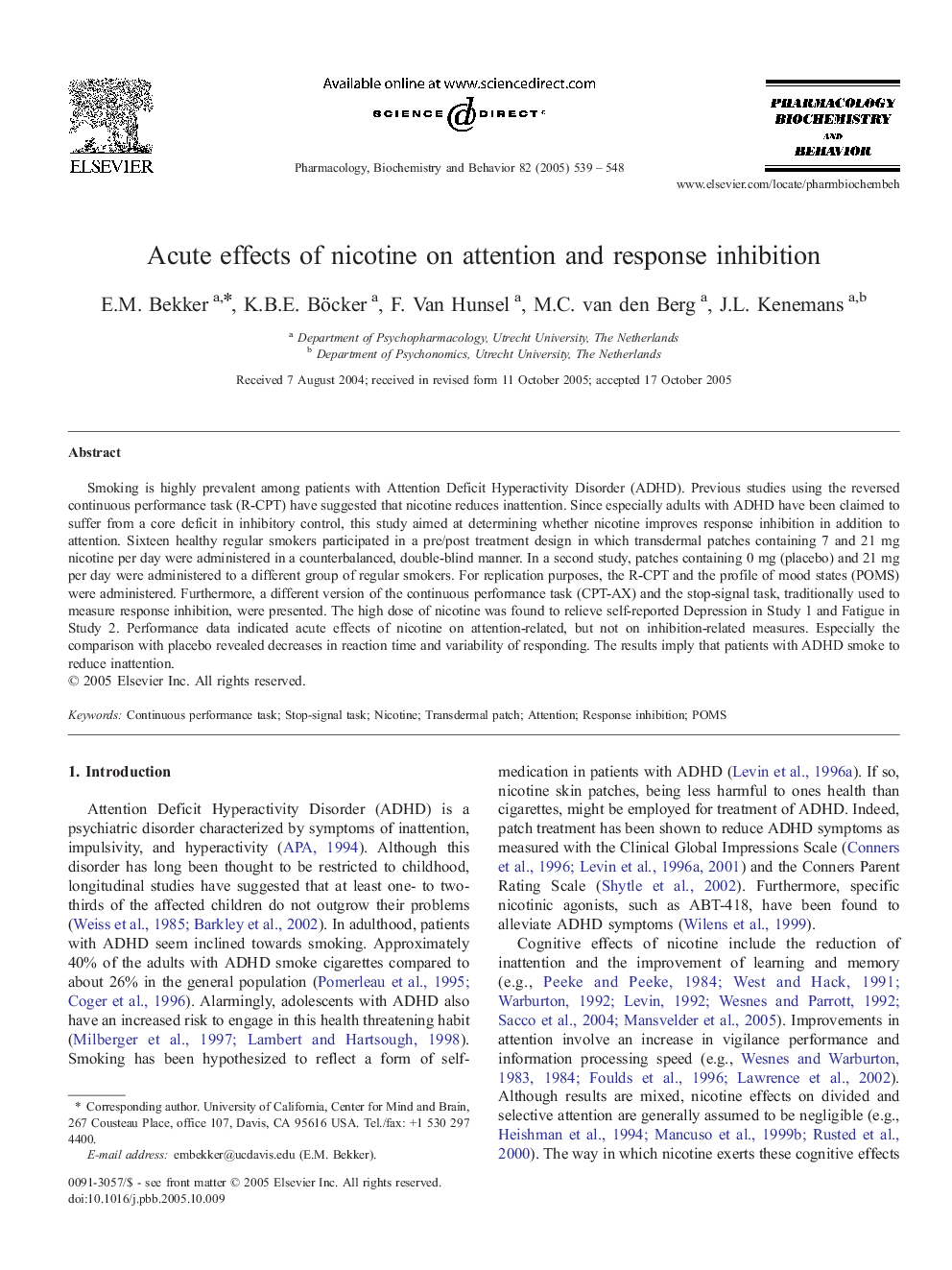| Article ID | Journal | Published Year | Pages | File Type |
|---|---|---|---|---|
| 10838345 | Pharmacology Biochemistry and Behavior | 2005 | 10 Pages |
Abstract
Smoking is highly prevalent among patients with Attention Deficit Hyperactivity Disorder (ADHD). Previous studies using the reversed continuous performance task (R-CPT) have suggested that nicotine reduces inattention. Since especially adults with ADHD have been claimed to suffer from a core deficit in inhibitory control, this study aimed at determining whether nicotine improves response inhibition in addition to attention. Sixteen healthy regular smokers participated in a pre/post treatment design in which transdermal patches containing 7 and 21 mg nicotine per day were administered in a counterbalanced, double-blind manner. In a second study, patches containing 0 mg (placebo) and 21 mg per day were administered to a different group of regular smokers. For replication purposes, the R-CPT and the profile of mood states (POMS) were administered. Furthermore, a different version of the continuous performance task (CPT-AX) and the stop-signal task, traditionally used to measure response inhibition, were presented. The high dose of nicotine was found to relieve self-reported Depression in Study 1 and Fatigue in Study 2. Performance data indicated acute effects of nicotine on attention-related, but not on inhibition-related measures. Especially the comparison with placebo revealed decreases in reaction time and variability of responding. The results imply that patients with ADHD smoke to reduce inattention.
Keywords
Related Topics
Life Sciences
Biochemistry, Genetics and Molecular Biology
Biochemistry
Authors
E.M. Bekker, K.B.E. Böcker, F. Van Hunsel, M.C. van den Berg, J.L. Kenemans,
